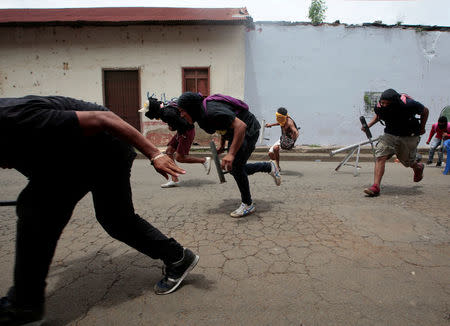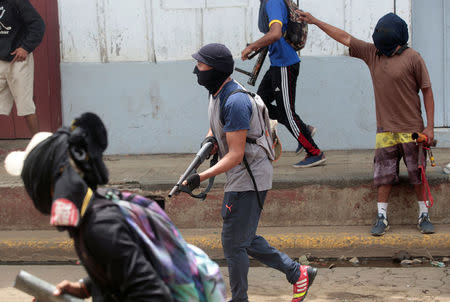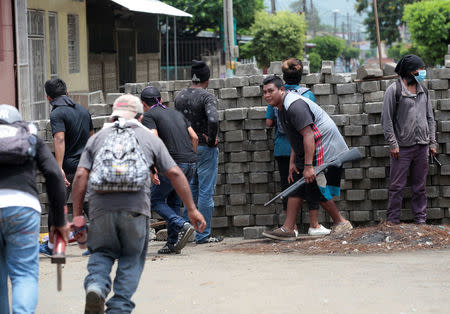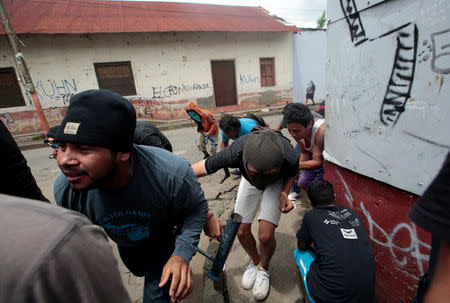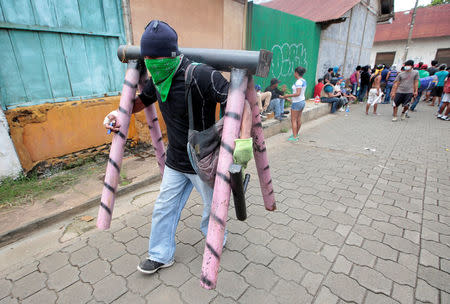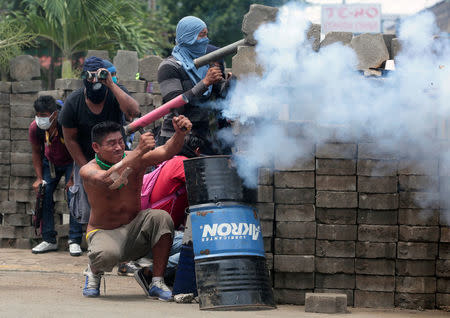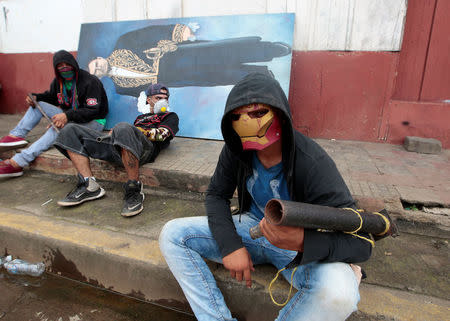Violence flares up in Nicaragua after suspension of peace talks
By Oswaldo Rivas
MASAYA, Nicaragua (Reuters) - Nicaraguan police and masked gunmen clashed with anti-government protesters on Tuesday, leaving at least two dead following the suspension of peace talks to quell two months of deadly demonstrations, a human rights group said.
Youths armed with homemade mortars and slings fired off projectiles from behind brick barricades in the southern city of Masaya, video footage taken by Reuters showed. Protesters there have kept a police station under siege for over two weeks in defiance of President Daniel Ortega.
Nicaragua has been convulsed by unrest since Ortega in April proposed cutting pension benefits to cover a social security shortfall. The plan, later dropped, triggered demonstrations that turned fatal and led to demands for his resignation.
Since then, at least 170 people have been killed in clashes between pro-Ortega forces and demonstrators, rights groups say.
Representatives of civil society organizations have called for early elections to end the impasse, but they broke off talks with the government on Monday until Ortega sent an invitation for international observers to enter the Central American country.
Juan Sebastian Chamorro, a leader of the main civic alliance seeking to broker agreement with the government, said there was no point in holding further talks about early elections "while people are being killed in the street."
Alvaro Leiva, a spokesman for Nicaraguan human rights group ANPDH, said at least 32 people had been injured in Masaya and two killed. Police declined to comment.
The U.S. government on Monday urged Nicaragua to stage early elections to end the violence, and Carlos Trujillo, the U.S. Permanent Representative to the Organization of American States, (OAS) was due to arrive in Managua on Tuesday.
Trujillo is scheduled to hold meetings to take stock of the situation ahead of an OAS permanent council special session on Nicaragua on Friday.
(Additional reporting by Alonso Soto in Managua; Editing by Cynthia Osterman)

 Yahoo News
Yahoo News 